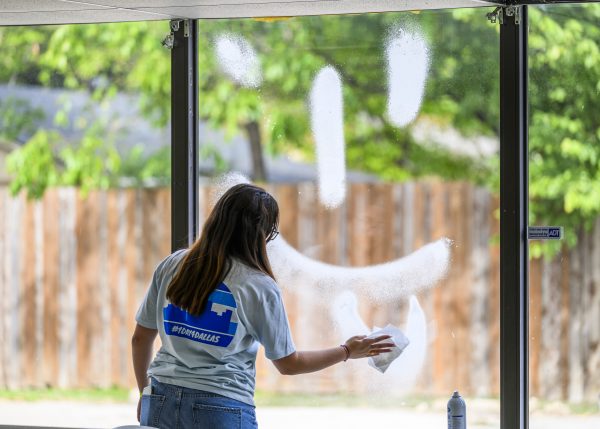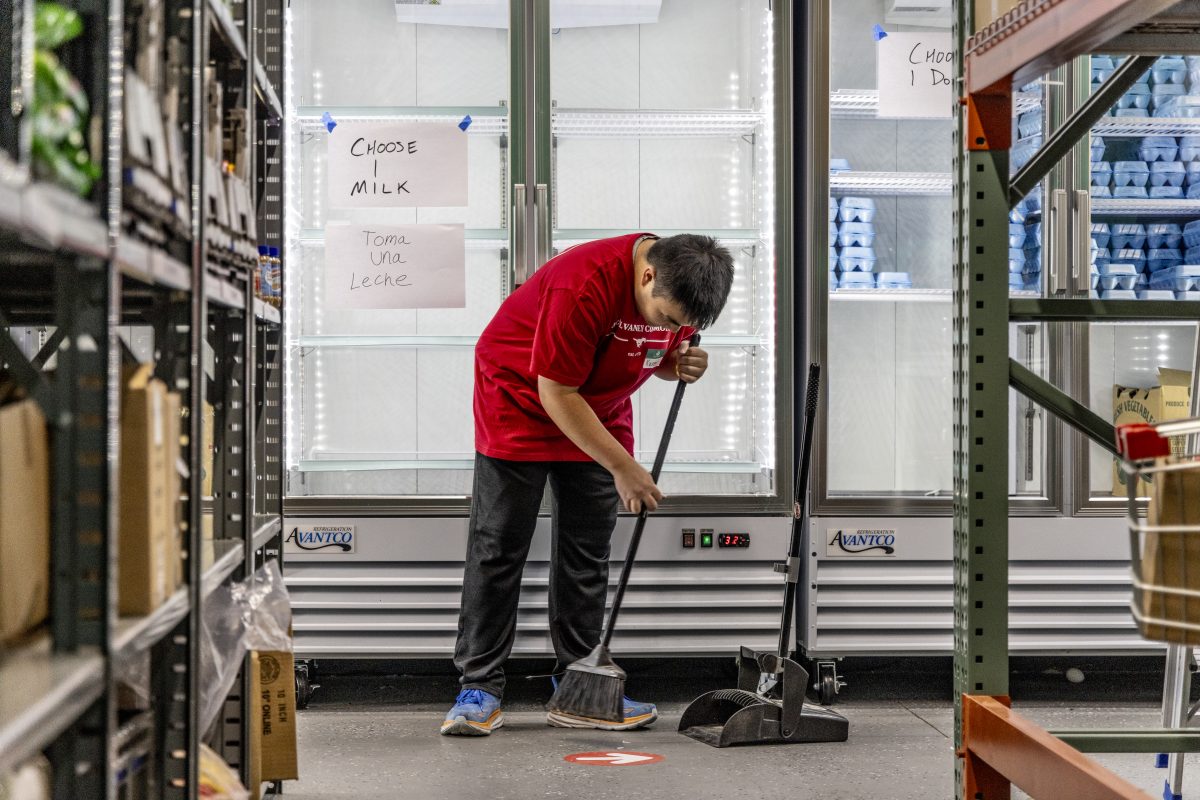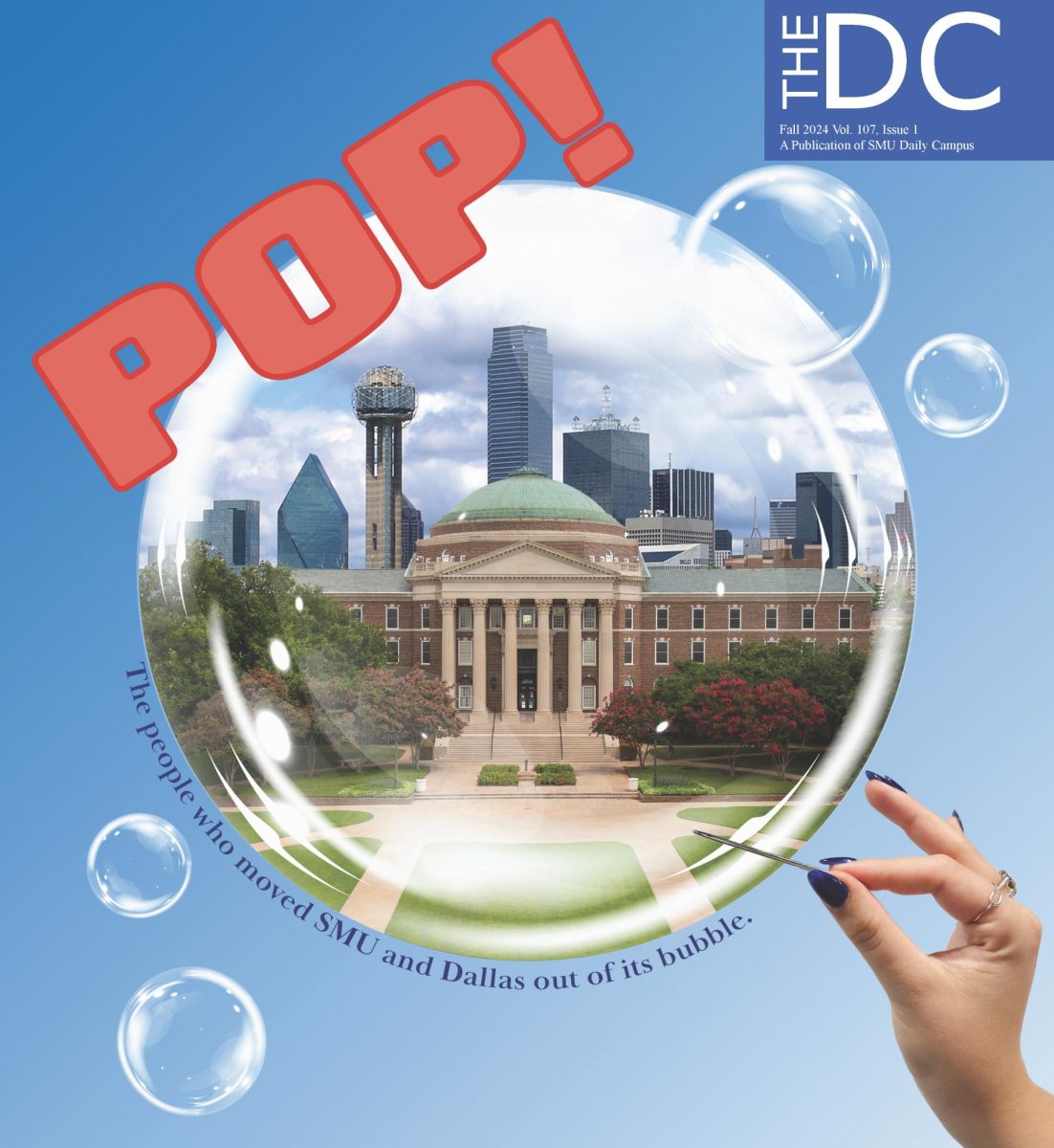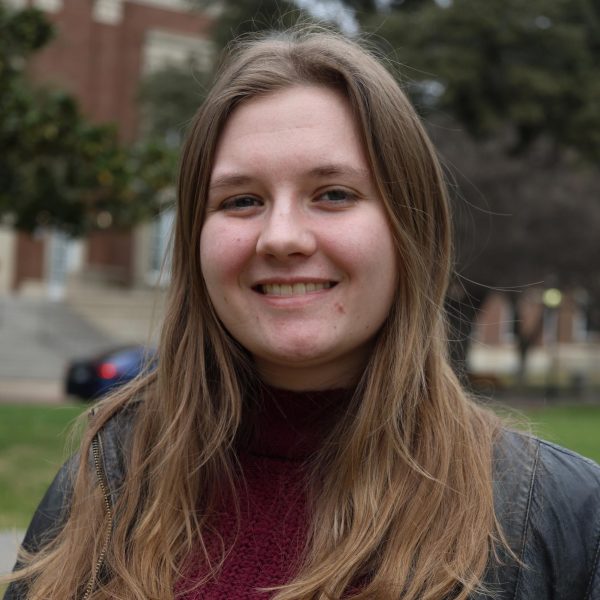SMU’s expansive volunteer program, Engage Dallas, puts in the work to get SMU students learning and volunteering for Dallas’ disenfranchised communities, but the program also educates students about what Dallas is like beyond the Park Cities bubble.
SMU established the program in October 2020 to be “a long-term, university-wide” partnership between students and residents. By volunteering, students can earn one or two proficiencies needed to graduate: community engagement proficiency & experience and civics & individual ethics. Engage Dallas also offers a paid summer internship with a local nonprofit for 10 weeks thanks to a partnership with the Hegi Family Career Development Center.
“Students are getting to truly take what they’re learning in their classes, whether it’s marketing, computer development, or website design, curriculum development, and take that to the community,” said Audryanna Reed, Engage Dallas’ associate director for high-impact practices.
The program channels most of its attention on leveraging its sizable student body to improve the conditions in South and West Dallas created by decades of discriminatory socioeconomic policies.
Each of SMU’s residential commons has its own initiative, such as homelessness, environmental justice and food insecurity, but events are open to all students. One residential commons, Virigina-Snider, partners with Voice of Hope, a West Dallas nonprofit ministry that works with underprivileged children, to meet their goal of improving childhood literacy.
Engage Dallas also offers other programs for students, staff and the Greater Dallas community to delve further into the topics that shaped Dallas. Last September marked the launch of the inaugural Engage Dallas Bus Tour, a hands-on learning experience that takes students throughout Dallas to learn about significant sites, such as the cabin of John Neely Bryan, the first resident of Dallas, Freedman’s Cemetery, a burial site for city’s African American community in 1861 and the Juanita J. Craft Civil Rights House, which is an official stop on the U.S. Civil Rights Trail.
The program also has a book club and every fall, students are encouraged to participate in #1Day4Dallas, a one-day volunteer event that revolves around the residential commons’ adopted initiative.
“What’s really awesome about Engage Dallas is there’s a lot of different ways in which you can volunteer,” said Hannah Green, an Engage Dallas volunteer and current coordinator for the program. “You could go to a community garden and help attend to the garden and just be an assistant to the nonprofit organization.”
For students like Victoria Valderrey, who helped graduate students learn English as a second language, community plays an important part in her decision to volunteer.

“I have always been surrounded with a family that always puts an emphasis on community,” she said. “My family and I are all English second learners, so it’s kind of a pay it forward sort of thing.”
Engage Dallas works with 34 community partners, which include Dallas community theaters, gardens and shelters. Each welcomes the helping hands of students who further each nonprofit’s initiative. At Austin Street Center, one of Dallas’ largest homeless shelters, the students’ work makes a difference.
“It takes a lot more than just the people on staff here to run the shelter, and having groups that come in semester after semester has been fantastic,” said Jill Young, the volunteer and community engagement manager at Austin Street Center. “Often, they are helping to sort donations or acting as personal shoppers for our clients, sometimes they can be serving meals, and I believe there has been a group before that played games with clients which helped bring extra joy into the shelter.”
Greenspace Dallas, an environmental group dedicated to protecting and supporting park development in the Trinity River Corridor, also attest to the students’ help.
“It’s been great,” said Casey Cutler, director of community engagement for Greenspace Dallas. “We typically host 20 to 30 volunteers at a time, so it’s been pretty fun to get SMU students who are young and passionate.,”
Cutler said SMU students come back to volunteer, and the organization’s getting more volunteers just by “word of mouth.”
Although volunteering is important to the program, Engage Dallas strives to educate SMU students about systemic issues affecting Dallas. Before volunteering with the program, students must complete a detailed overview module about the program and its purpose.
“We talk about what exactly it means to serve in a place based community engagement initiative, and why and the value of serving in a place based community engagement initiative,” Reed said. “[it] briefly gives them an overview of a little bit of the history of South Dallas, a little bit of the history of West Dallas, and again, why we serve in these specific communities.”
Students interested in volunteering for the program still have the opportunity to earn credit throughout the rest of November, and can earn up to around 20 hours by completing the supplemental trainings.
“Service is one way that people can come to find community,” Reed said. “While we’re serving the community, we’re also cultivating community with our students who live on campus and through their residential communities.”
















